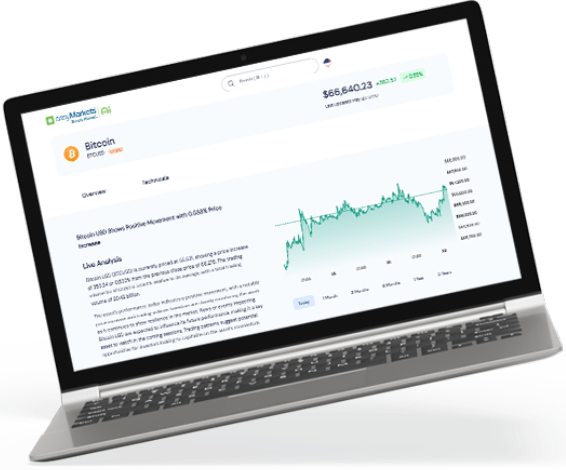O que é Psicologia de Negociação?

Quando você imagina alguém com disciplina, controle emocional e uma estratégia sólida, quem lhe vem à mente primeiro? Um soldado? Claro. Um jogador de xadrez? Com certeza.
No mundo do trading, essas mesmas qualidades são igualmente cruciais. Os mercados podem se movimentar rapidamente e, quando os preços flutuam descontroladamente, manter a calma e o foco pode significar a diferença entre o sucesso e erros dispendiosos. É aí que entra a psicologia de negociação.
Compreender a psicologia de negociação pode ajudar os traders novos e experientes a tomar melhores decisões, gerenciar os riscos de forma eficaz e manter a consistência ao longo do tempo. Vamos explorar os principais fatores emocionais e psicológicos que afetam as negociações e como gerenciá-los.
Psicologia de Negociação
Emoções como medo, ganância e raiva podem obscurecer seu julgamento e fazer com que você abandone seu plano de trading. Você pode negociar em excesso, assumir muito risco ou fechar as negociações muito cedo (ou muito tarde). Essas reações emocionais podem ter um impacto real em seu desempenho.
De fato, um estudo bem conhecido sobre as reações emocionais dos traders descobriu que aqueles que reagiram mais fortemente, positiva ou negativamente, aos ganhos e às perdas, na verdade, tiveram um desempenho pior no geral.
“Os indivíduos cujas reações emocionais a ganhos e perdas monetárias foram mais intensas... apresentaram um desempenho de negociação significativamente pior.”
Medo e Ganância nos Mercados Financeiros: Um Estudo Clínico de Day-Traderspor Lo, Repin e Steenbarger
Pesquisas mais recentes corroboram essas descobertas. Um estudo de 2023 intitulado Emotional Engagement and Trading Performance (Engajamento Emocional e Desempenho de Negociação) constatou que os traders que demonstravam reações emocionais após a realização das negociações, em vez de antes, tendiam a ter um desempenho pior. Em contraste, aqueles que exibiam respostas emocionais antecipatórias antes de executar as negociações, como batimentos cardíacos elevados, tinham maior probabilidade de obter lucros mais altos. A pesquisa sugere que, embora a reatividade emocional possa prejudicar o desempenho, um certo nível de previsão emocional pode, na verdade, melhorar os resultados das negociações.
Além disso, um estudo de 2021 publicado na Finance Research Letters analisou mais de dois milhões de postagens em fóruns e descobriu que as expressões emocionais previam significativamente o volume de negociação e a volatilidade do retorno do Bitcoin, indicando que as emoções desempenham um papel crucial na dinâmica do mercado.
Barreiras Psicológicas para uma Negociação Eficaz
Os três desafios emocionais mais comuns que os traders enfrentam são:
Medo
O medo geralmente leva os traders a sair de posições muito cedo ou a evitar entrar em negociações. Por exemplo, sua análise sugere que um ativo subirá até o final do dia, mas uma queda temporária no preço faz com que você entre em pânico e feche a negociação. Mais tarde, o preço se recupera exatamente como você previu, mas você já obteve um ganho menor ou perdeu totalmente o lucro. Esse é um exemplo clássico do medo sobrepondo-se à lógica, o que leva a dúvidas e à perda de oportunidades.
Ganância
A ganância normalmente vem do excesso de confiança. Você está em uma negociação vencedora e decide mantê-la por mais tempo do que o planejado, esperando obter ainda mais lucro. Mas o mercado se inverte e você devolve seus ganhos. A ganância o leva a ignorar seu plano de saída e a correr riscos desnecessários.
Negociação com Raiva/Vingança
Após uma série de perdas, é tentador perseguir o mercado com negociações emocionais e não planejadas para “recuperar tudo”. Isso é chamado de negociação de vingança e raramente termina bem. Em vez disso, dê um passo atrás, revise sua estratégia e concentre-se em seu desempenho geral, não em negociações individuais.
O planejamento supera o pânico: o poder de uma estratégia de negociação
Uma das melhores maneiras de gerenciar sua psicologia de negociação é criar um plano de trading claro e segui-lo à risca. Uma estratégia sólida deve incluir:
- • Relações de risco/recompensa
- • Níveis de entrada e saída
- • Exposição máxima por operação
- • Critérios baseados em análise técnica ou fundamental
Como criar uma estratégia de negociação
Mantenha um diário de negociação
Acompanhe suas negociações para identificar padrões, sucessos e erros.
Faça sua pesquisa
Mantenha-se informado sobre as condições, tendências e eventos do mercado.
Seja adaptável
Atualize sua estratégia quando necessário, mas evite mudanças impulsivas.
Defina limites superiores e inferiores
Use ferramentas como o Stop Loss Garantido sem Deslizamento* para gerenciar o risco e garantir os ganhos.
Gerenciamento do Estresse
O estresse pode levar a decisões impulsivas e ao mau gerenciamento de riscos. Para negociar com eficiência, você precisa de uma mentalidade calma e concentrada.
Veja a seguir como reduzir o estresse durante a negociação:
Faça pausas
Afaste-se da tela quando as emoções estiverem à flor da pele.
Limite o risco
Mantenha o tamanho das negociações entre 1-3% do valor total de sua conta.
Evite pressão de margem
Certifique-se de que sua conta tenha saldo suficiente para evitar Margin Calls
Use condições de negociação confiáveis
- • Spreads Fixos Reduzidos: a easyMarkets oferece spreads fixos reduzidos em nossa plataforma proprietária na web e no aplicativo, bem como no MetaTrader 4 (MT4) e no TradingView, garantindo que os spreads não aumentem durante a volatilidade.
- • Stop Loss Garantido sem Derrapagem* Isso garante que suas negociações sejam executadas exatamente na taxa de stop loss desejada.
Essas condições lhe dão mais controle e reduzem os custos surpresa, ajudando-o a se concentrar na sua estratégia, não no estresse.
Controlar a raiva e evitar negociações emocionais
Se você acabou de perder algumas negociações e se sente frustrado, é fácil cair em uma mentalidade de negociação de vingança.
Antes de abrir outra operação, pergunte a si mesmo:
- • Estou negociando com base em meu plano ou em minhas emoções?
- • Tentei recuperar as perdas fazendo operações não planejadas?
- • Estou arriscando mais do que deveria?
Se a resposta a qualquer uma dessas perguntas for “sim”, pare. Faça uma pausa. Revise seu diário. Reconecte-se com sua estratégia antes de voltar ao mercado.
Mesmo depois de uma sequência de vitórias, o excesso de confiança pode levar a decisões arriscadas. O segredo é manter-se firme, independentemente do resultado.
Ferramentas para apoiar sua psicologia de negociação
O sucesso nas negociações é mais do que apenas habilidade técnica. Gerenciar suas emoções é igualmente importante. É por isso que a easyMarkets oferece condições de negociação e ferramentas projetadas para apoiar sua mentalidade e proteger seus fundos.
easyTrade
Um ticket de negociação simplificado, no estilo de opção, sem spreads e sem margem. Você escolhe seu nível de risco antecipadamente sem colocar nenhum limite em seu potencial de ganho.
Spreads Fixos Reduzidos
Conheça seus custos antes de negociar. Ao negociar por meio da web e do aplicativo proprietário da easyMarkets, os spreads do TradingView e do MT4 permanecem fixos, mesmo durante as principais notícias ou volatilidade.
Stop Loss Garantido sem Derrapagem*
Essa condição de negociação exclusiva permite que você defina com confiança seus limites de negociação e garante que sua negociação feche exatamente no stop-loss desejado, protegendo sua conta contra perdas excessivas.
Continue aprendendo
Agora que você entende os fundamentos da psicologia de negociação, é hora de continuar crescendo. Explore a easyMarkets Academy, um centro de aprendizado gratuito com dezenas de cursos, vídeos e testes para ajudá-lo a melhorar sua estratégia, fortalecer sua disciplina e criar hábitos de negociação duradouros.
Academia easyMarkets*O Stop Loss Garantido sem Derrapagem está disponível apenas na plataforma de negociação da web e do aplicativo da easyMarkets. Ative com spread mais amplo para controle total do risco.

Quando você imagina alguém com disciplina, controle emocional e uma estratégia sólida, quem lhe vem à mente primeiro? Um soldado? Claro. Um jogador de xadrez? Com certeza.
No mundo do trading, essas mesmas qualidades são igualmente cruciais. Os mercados podem se movimentar rapidamente e, quando os preços flutuam descontroladamente, manter a calma e o foco pode significar a diferença entre o sucesso e erros dispendiosos. É aí que entra a psicologia de negociação.
Compreender a psicologia de negociação pode ajudar os traders novos e experientes a tomar melhores decisões, gerenciar os riscos de forma eficaz e manter a consistência ao longo do tempo. Vamos explorar os principais fatores emocionais e psicológicos que afetam as negociações e como gerenciá-los.














